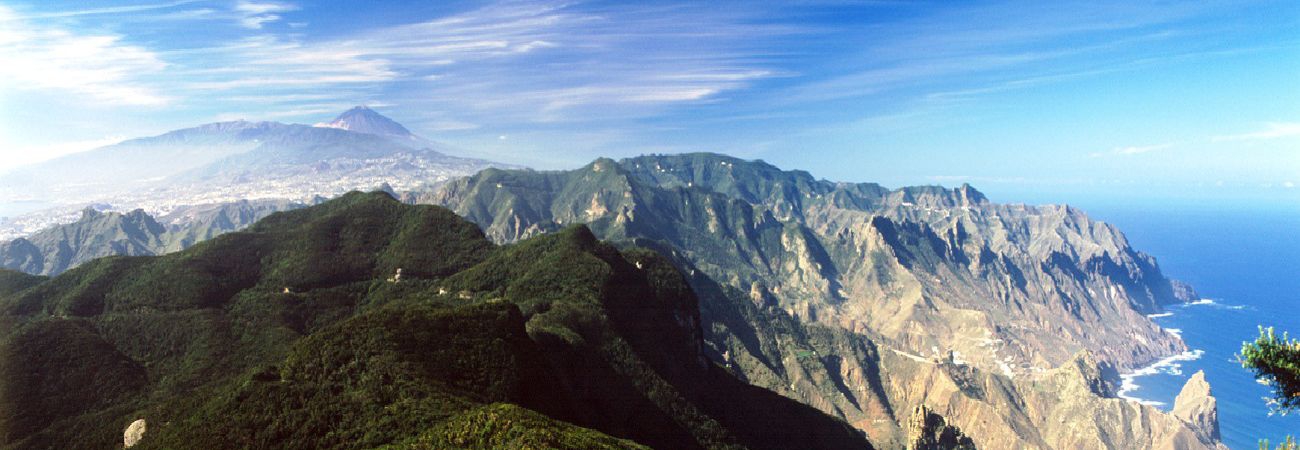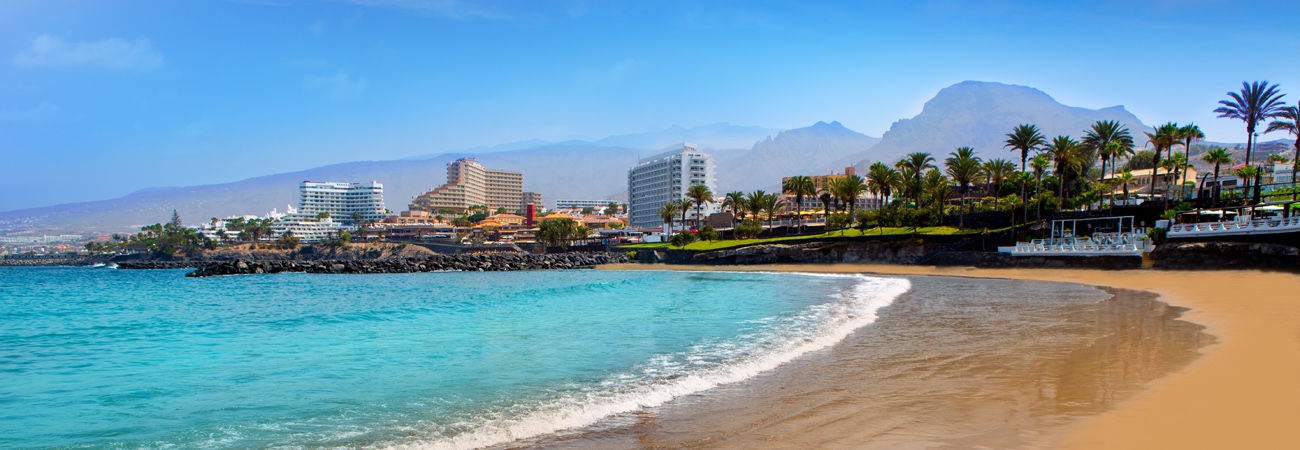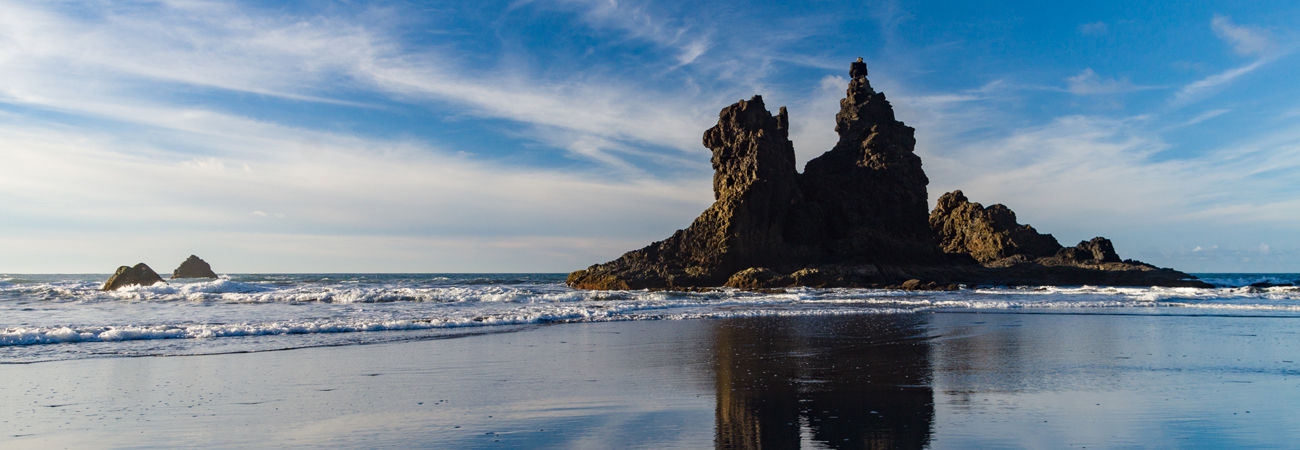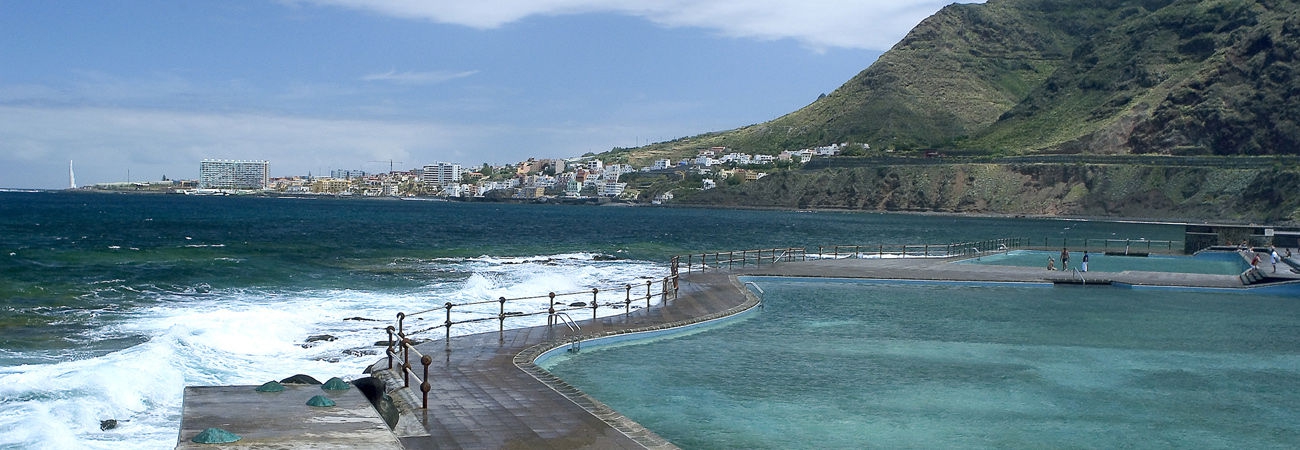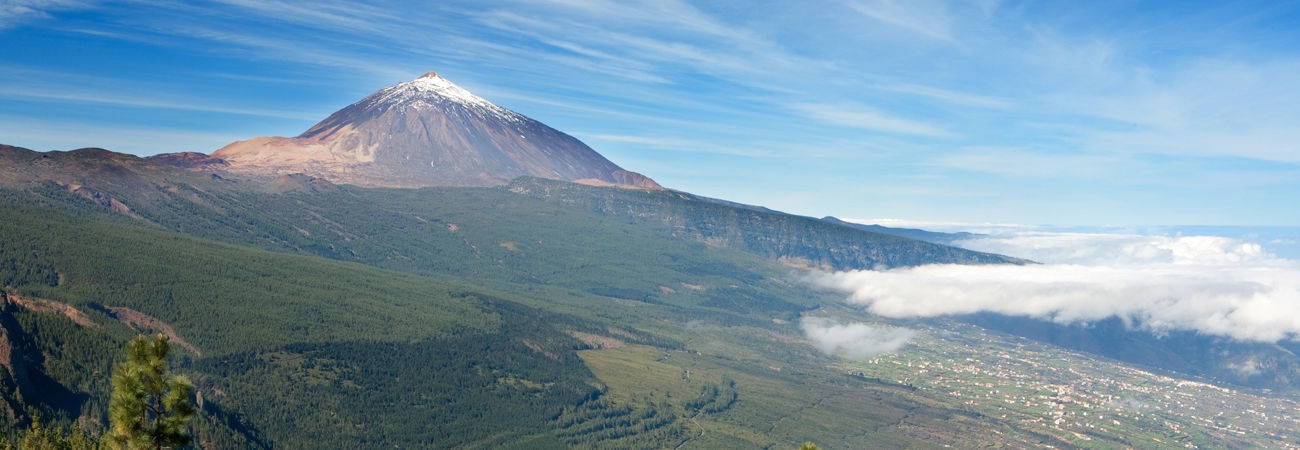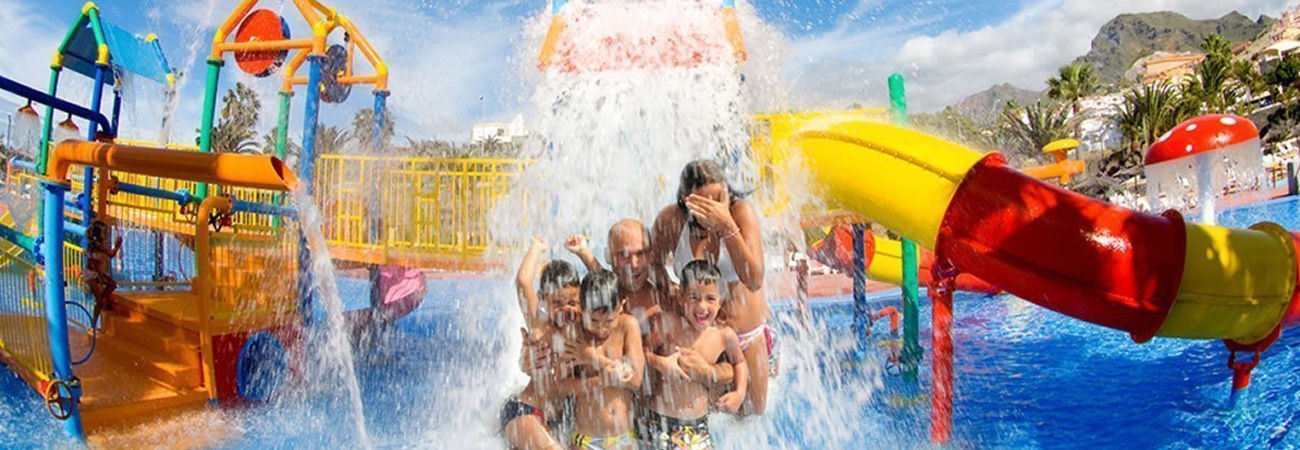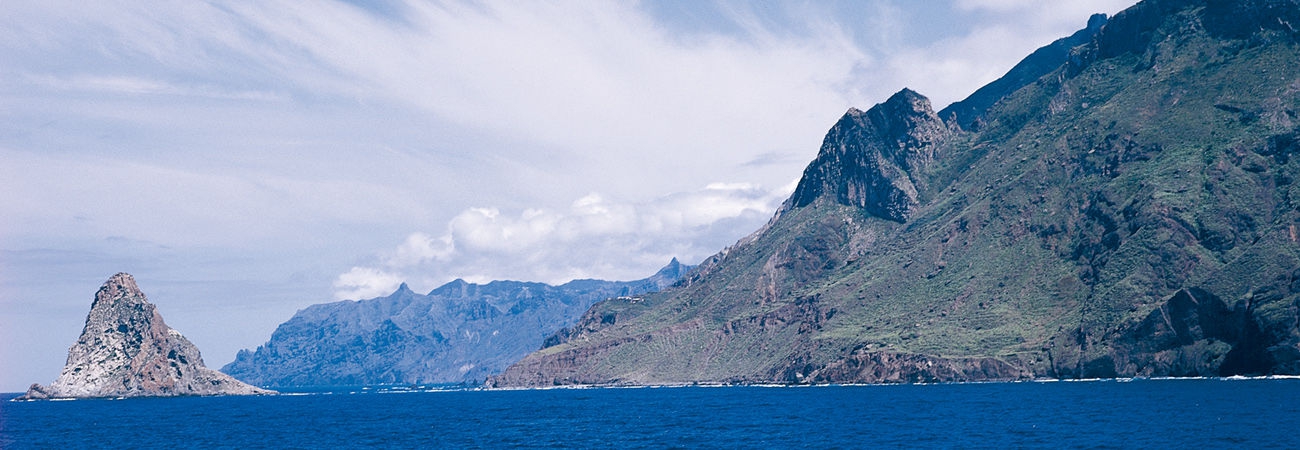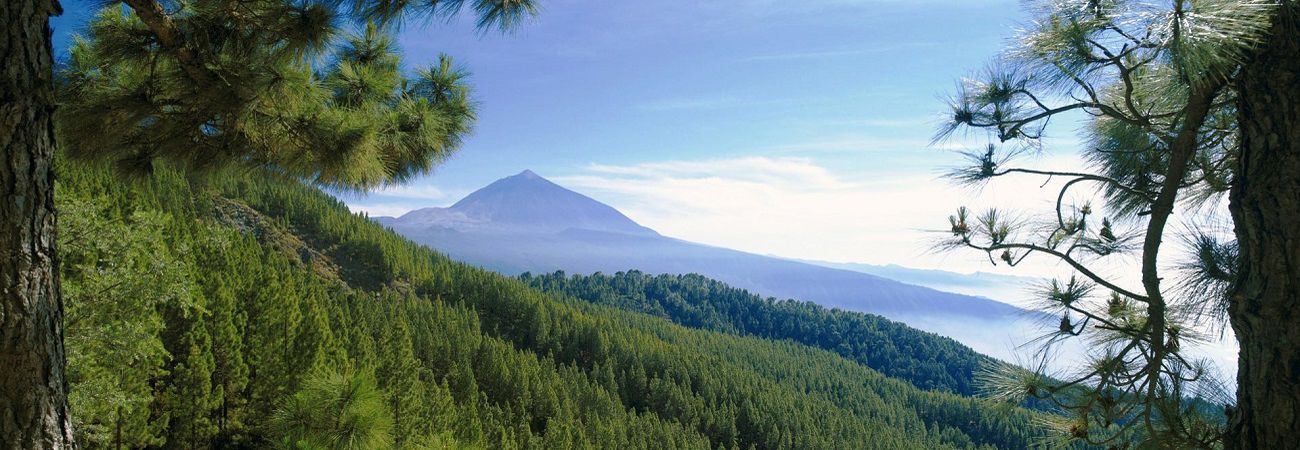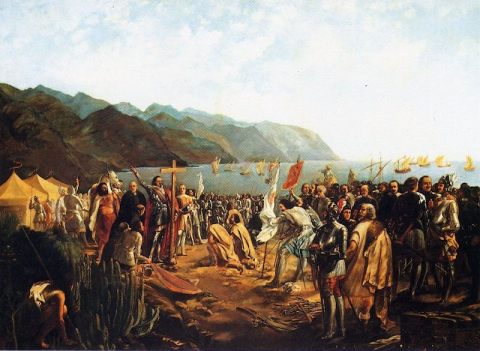Other famous people
Bencomo. Mencey (king) of Taoro, who lead the Guanche forces against the conquering Spanish invaders. Died in 1495, in the battle of La Laguna, against the troops of the Captain General. In the final battle Alonso Fernandez de Lugo's army faced the Guanches, led by Bentorey (Bentor), a son of Bencomo, who decided to commit suicide when he was defeated. A grandson of Bencomo, christened as Cristobal Hernandez de Taoro (Cristobal Bencomo), studied law on the mainland and is the author of a chronicle, that has subsequently disappeared, of the history of the Guanche people.
Dacil, Guanche princess and legendary character mentioned by Antonio de Viana in his work La Conquista de Tenerife (1604), her love for captain Gonzalo del Castillo symbolises the normalisation of the new island society, the foundation of the historic identity of Tenerife.
Jose de Anchieta (La Laguna, 1534 - Anchieta, Brazil, 1597). He studied with the Jesuits in Coimbra, Portugal, and joined their order in 1551, leaving for Brazil in 1553. He opened the San Pablo college, which was the nucleus around which the city of Sao Paulo developed. He was one of the oldest and most important authors of colonial Brazil. He wrote in Portuguese, Latin and Tupi (the language of the Tupinambo indians). His Tupi grammar is interesting, as are several of his dramatic poems. He was beatified by Pope John Paul II on 20th of June, 1980.
Pedro de Betancur (Vilaflor, 1626 - Guatemala, 1667). He set off for America at 23. He lived in Cuba and later settled in Guatemala. He founded the Betlemite order, which does much hospital work, the first religious congregation to emerge in America. The order was given Papal approval by Clement X in 1672. He was beatified in 1980 and canonised on 30th July 2002 by Pope John Paul II -the first Guatemalan and Canarian saint born in the Canary Islands.
Alonso de Nava y Grimon. 4th Marquis of Villanueva del Prado (La Laguna, 1756 - 1832). He hosted the Nava Tertulia (intellectual discussion group) that was the core of the leading figures of the enlightenment in the Canary Islands. He directed the Real Sociedad Economica de Amigos del Pais de Tenerife. He presided over the Canary Islands Supreme Council in 1808.
Leopoldo O'Donell y Jorris, Duke of Tetuan and Count of Lucena (Santa Cruz de Tenerife, 1809 - Biarritz, France, 1867). He was head of the government for three terms during the reign of Isabel II, and was Minister of War. He also enjoyed important military successes, especially in the African war of 1859 - 1860.
Juan Bautista Antequera y Bobadilla (Santa Cruz de Tenerife, 1823 - Madrid, 1890). Rear Admiral, Navy Minister and life-time Senator for Tenerife. He won naval honours in the Pacific campaign and formed part of the crew of the Numancia, the first armoured ship to sail around the world.
Science and Technology
Agustin de Betancourt (Puerto de la Cruz, 1758 - St. Petersburg, 1828). Engineer, trained in Madrid and Paris. In 1802, he founded the School of Roads, Canals and Ports Engineers in Madrid. He was the director. In Paris, he directed the Royal Cabinet of Machines. In 1807, he went to Russia, where he was appointed Field Marshall and head of the Institute of the Engineers corps by Tsar Alexander I. From 1819, he was in charge of the department of Communications for Imperial Russia. He designed and built steam ships and drew up many blue-prints for factories and the first arched bridge to be built in Russia.
Antonio Gonzalez Gonzalez (Los Realejos, 1917-2002). Professor of Organic Chemistry and Biology at the University of La Laguna from 1946 to 1986. The Advanced Scientific Research Council appointed him Head of the Organic Chemistry Section in 1945. In 1963, he was appointed director of the Tenerife Institute of Chemical Research, the precursor of the Institute of Natural Organic Products. He started a school with international repercussions, especially in Latin America. King Juan Carlos I made him a Senator in 1977. He has been awarded the Canary Island Research prize (1984) and the Prince of Asturias prize (1986).
Telesforo Bravo Expósito
(Puerto de la Cruz 1913-2002) One of the leading scientific figures in the Canaries, in research, education and publication. Bravo Expósito earned a doctorate in Geology from the Complutense University of Madrid and received a Special Award for his thesis.
After a short stay at the Museo Canario (museum) in Las Palmas de Gran Canaria, Bravo Expósito began a fruitful relationship with the University of La Laguna, as Professor of Petrology (1966), where he taught in teacher training, biology, pharmacy and geography.
His ample scope of action meant that he belonged to numerous scientific institutions either as director, or full or honorary member. In 1998, he received social acclaim for his career when he received the Canary Island Research Award, followed by the César Manrique Environment Award in 2000.







